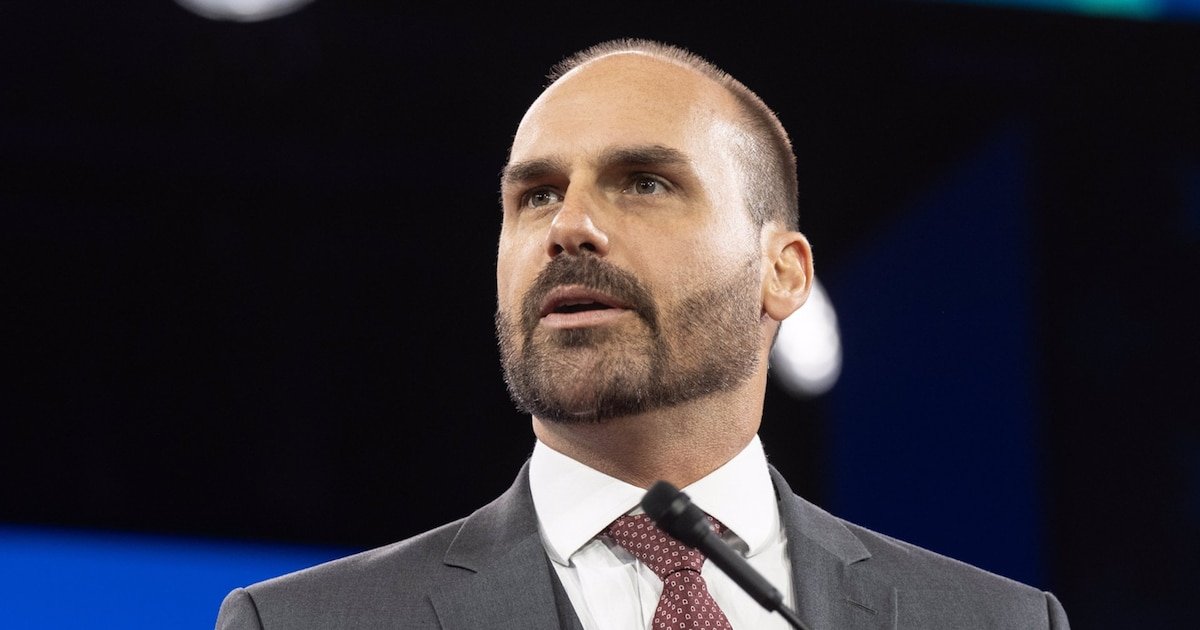INTERNACIONAL
House witness flips script on Dem who ambushed him during hearing with unearthed tweet: ‘Iceberg is ahead’

NEWYou can now listen to Fox News articles!
FIRST ON FOX: A House committee witness who was called out by Democratic Rep. Robert Garcia of California during a hearing this week is pushing back after the congressman unearthed a past social media post on Social Security in an attempt to discredit his testimony.
During a House oversight DOGE subcommittee hearing on Wednesday, Garcia grilled Power the Future CEO Dan Turner while holding up a posterboard of a past tweet calling Social Security a «government-sponsored Ponzi scheme.»
«Madoff went to jail for it. Congress runs on it,» the post said. «I should be able to keep 100% of my money and not watch government waste it with a paltry percentage return.»
Garcia then suggested that post was evidence that Turner lacks the credibility to be testifying about the billions of federal tax dollars directed to left-wing NGOs.
SOCIAL SECURITY COMMISSIONER BREAKS DOWN PLAN TO SAVE AGENCY FROM INSOLVENCY
Power the Future CEO Dan Turner and Dem. Rep. Robert Garcia sparred in a Thursday House hearing (Fox News Digital)
«A Ponzi scheme and so I think it’s interesting, of course, as one of our Republican witnesses is calling Social Security a Ponzi scheme, and that’s the person that we should be taking advice from here today,» Garcia said.
«Without Social Security, 22 million people would be pushed into poverty. That includes over 16 million seniors and nearly 1 million children. And in fact, Elon Musk has also said and agreed with you, sir, that this is a Ponzi scheme. I think it’s ironic that you are one of our witnesses talking about efficiency when you want to attack the single best program that we have to support people not just out of poverty, but across this country to uplift them, to ensure they can afford a decent life.»
Fox News Digital spoke to Turner, who stood by his post and outlined his belief, echoed by many, that Social Security is structured like a Ponzi scheme by definition.
SEN ELIZABETH WARREN: SOCIAL SECURITY IS UNDER ATTACK. GUTTING IT IS A BROKEN PROMISE

Former White House Senior Advisor Elon Musk walks to the White House after landing in Marine One on the South Lawn. (Samuel Corum/Getty Images)
«Rep Garcia does not know the definition of Ponzi scheme,» Turner said. «Social Security is the ultimate Ponzi, demanding more and more people at the bottom pay in to fund the people at the top, expect our demographics have this now reversed. The system will default. Mr. Garcia nor I will likely never see a dime. That should worry him more than my social media feed.»
Turner told Fox News Digital that if Garcia’s staff were to spend as much time trying to save Social Security as it did «combing through my social media» then «perhaps the Ponzi scheme can survive long enough for me to get a small percentage of what the government confiscated during my lifetime.»
Turner explained that his father had received a «paltry percentage» of what he paid into the program and the the government «kept the rest» when his father died.
«That’s not just a Ponzi scheme, it’s government greed and politicians running a money-laundering operation to get reelected. No one should be compelled to pay into a failed system, yet in a free America, you don’t have that choice.»
In addition to Turner and Elon Musk suggesting that Social Security is by definition set up like a Ponzi scheme, Fox News Digital previously spoke to James Agresti, president of the nonprofit research institute Just Facts, who said the characterization has «validity.»
‘FAILURE’S NOT AN OPTION’: TRUMP BUDGET BILL WILL BE ‘BIG’ HELP FOR SENIORS, TOP HOUSE TAX-WRITER SAYS
«A Ponzi scheme operates by taking money from new investors to pay current investors,» Agresti said. «That’s the definition given by the SEC, and contrary to popular belief, that’s exactly how Social Security operates.»
Agresti explained to Fox News Digital that Social Security, a program mired for decades with concerns about waste, fraud, and improper payments, «doesn’t take our money and save it for us, as many people believe, and then give it to us when we’re older» like many Americans might believe.
«What it does is, it transfers money when we are young and working and paying into Social Security taxes,» Agresti said. «That money, the vast bulk of it, goes immediately out the door to people who are currently receiving benefits. Now, there is a trust fund, but in 90 years of operation, that trust fund currently has enough money to fund two years of program operations.»
The trust fund only being able to last for two years is not a result of the fund being «looted,» Agresti explained, but rather it was put in place to «put surpluses in it» from money that Social Security collects in taxes that it doesn’t pay out immediately and pays interest on.
«The interest that’s been paid on that has been higher than the rate of inflation,» Agresti said. «So, the problem isn’t that the trust fund has been looted. The problem is that Social Security operates like a Ponzi scheme.»
Democrats have vocally pushed back against efforts by Republicans and DOGE to reform Social Security or make cuts to what they say are examples of wasteful or improper spending from the department.
«There’s been a lot of misinformation about that as of late,» Agresti told Fox News Digital. «You know, when DOGE came in and suggested that the Social Security Administration cut, I think it was about 10,000 workers, Democrats erupted that this is going to weaken Social Security. But the fact of the matter is that Social Security pays those workers who are for administrative overhead from the Social Security trust fund. So, by cutting out the money that they’re paying them, you actually strengthen the program financially.»
CLICK HERE TO GET THE FOX NEWS APP

Rep. Robert Garcia, Democrat from California, speaks on the first day of the Democratic National Convention (DNC). (AP)
Agresti told Fox News Digital that the current administrative overhead for Social Security is $6.7 billion per year, which is enough to pay more than 300,000 retirees the average old-age benefit.
«Every single study shows social security going completely bankrupt in the next few years. Garcia and other democrats know the iceberg is ahead but rather than turn the ship, they are yelling at the iceberg about the senior citizens onboard,» Turner said. «This Ponzi scheme is collapsing fast, and turning my tweets into posters is not going to stop it.»
INTERNACIONAL
Trump invokes Russia collusion hoax while calling for longtime foe Schiff to face jail time

NEWYou can now listen to Fox News articles!
President Donald Trump called for California Democrat Sen. Adam Schiff to face jail time while invoking recently declassified documents alleging Obama administration officials «manufactured and politicized intelligence» to create the narrative that Russia was attempting to influence the 2016 presidential election.
«Adam ‘Shifty’ Schiff is in BIG TROUBLE!» Trump posted to Truth Social Sunday evening. «He falsified Loan Documents. He once said my son would go to prison on a SCAM that Schiff, along with other Crooked Dems, illegally ‘manufactured’ in order to stage an actual coup.»
«My son did nothing wrong, knew nothing about the fictional story,» he added. «It was an American Tragedy! Now Shifty should pay the price of prison for a real crime, not one made up by the corrupt accusers!»
Schiff is under scrutiny after the U.S. Federal Housing Finance Agency (FHFA) sent a letter to the Department of Justice in May sounding the alarm that in «multiple instances,» Schiff allegedly «falsified bank documents and property records to acquire more favorable loan terms, impacting payments from 2003-2019 for a Potomac, Maryland-based property.»
FEDERAL HOUSING OFFICIAL SUBMITTED SCHIFF CRIMINAL REFERRAL TO DOJ OVER MORTGAGE DOCUMENTS
President Donald Trump highlighted 2024 allegations of mortgage fraud against Sen. Adam Schiff, left — claims that Schiff has denied. (Getty Images)
FHFA is an independent federal agency that oversees Fannie Mae, Freddie Mac and the Federal Home Loan Bank System.
Schiff’s office did not respond to Fox News Digital’s request for comment Monday morning.
Trump publicly lambasted Schiff Tuesday over the alleged mortgage fraud, while Fannie Mae’s financial crimes investigations concluded last week in a letter to the FHFA that Schiff allegedly engaged in «a sustained pattern of possible occupancy misrepresentation» on five Fannie Mae loans, Fox News Digital previously reported.
«I have always suspected Shifty Adam Schiff was a scam artist,» Trump posted to Truth Social Tuesday. «And now I learn that Fannie Mae’s Financial Crimes Division have concluded that Adam Schiff has engaged in a sustained pattern of possible Mortgage Fraud.»
«Adam Schiff said that his primary residence was in MARYLAND to get a cheaper mortgage and rip off America, when he must LIVE in CALIFORNIA because he was a Congressman from CALIFORNIA. I always knew Adam Schiff was a Crook. The FRAUD began with the refinance of his Maryland property on February 6, 2009, and continued through multiple transactions until the Maryland property was correctly designated as a second home on October 13, 2020.»
Schiff has passed off the allegations as a continuation of Trump’s history of slamming the liberal lawmaker.

Sen. Adam Schiff is facing scrutiny over his home mortgages in California and Maryland. (Drew Angerer/Getty Images)
«Since I led his first impeachment, Trump has repeatedly called for me to be arrested for treason,» Schiff posted to X earlier in July after Trump first accused Schiff of mortgage fraud. «So in a way, I guess this is a bit of a letdown. And this baseless attempt at political retribution won’t stop me from holding him accountable. Not by a long shot.»
WATCH: ADAM SCHIFF SILENT AFTER TRUMP ACCUSED HIM OF MORTGAGE FRAUD
Trump and Schiff have long been political foes, which was underscored during Trump’s first administration when Schiff served as the lead House manager during the first impeachment trial against Trump in 2020, and when Schiff repeatedly promoted claims that Trump’s 2016 campaign colluded with Russia.
Days after Trump first posted about Schiff’s mortgages in Maryland and California, the president’s Director of National Intelligence Tulsi Gabbard declassified documents that reportedly show «overwhelming evidence» that then-President Barack Obama and his national security team laid the groundwork for what would be the yearslong Trump–Russia collusion probe after Trump’s election win against former Secretary of State Hillary Clinton in 2016.
«It lays out, these over 100 documents that you’re referencing, that I declassified and released, spells out in great detail exactly what happens when you have some of the most powerful people in our country directly leading at the helm, President Obama and his senior-most national security cabinet, James Comey, John Brennan, James Clapper, and Susan Rice and others, essentially making a very intentional decision to create this manufactured, politicized piece of intelligence with the objective of subverting the will of the American people,» Gabbard told Fox News’ Sean Hannity Friday evening.

Tulsi Gabbard declassified documents that reportedly show «overwhelming evidence» that then-President Barack Obama and his national security team laid the groundwork for what would be the yearslong Trump–Russia collusion probe. (John McDonnell/The Associated Press)
TRUMP ACCUSES ‘SCAM ARTIST’ SCHIFF OF LYING ABOUT MARYLAND HOME TO COMMIT MORTGAGE FRAUD
She argued that the goal of Obama and his team was to essentially «not accept the decision of the American people» in 2016, and to use this «manufactured, politicized piece of intelligence» as a means to enact a «years-long coup against President Trump.»
Schiff was an incredibly vocal lawmaker amid the Russian collusion claims, most notably when the House censured him in 2023 over his promotion that Trump’s 2016 campaign colluded with Russia. Schiff served in the House representing California from 2001 to 2024, when he was sworn-in as a senator after his successful 2024 campaign to serve in the nation’s upper chamber.

Sen. Schiff was a vocal lawmaker who promoted the narrative that the 2016 Trump campaign colluded with Russia. (Susan Walsh/The Associated Press)
CLICK HERE TO GET THE FOX NEWS APP
Schiff served as the ranking member of the House intelligence committee from 2015 to 2019, before becoming the committee’s chair from 2019 to 2023. In that role, Schiff was kept up to date on classified materials surrounding the Russian collusion claims.
Schiff advocated in 2018 that Donald Trump Jr., the president’s son, face a subpoena amid Special Counsel Robert Mueller’s investigation into claims Trump’s 2016 campaign colluded with Russia to secure the election, which Trump cited in his latest Truth Social aimed at Schiff. Mueller’s investigation, which wrapped up in March 2019, into the Russia claims determined there was no evidence of collusion between the Trump campaign and Russia.
INTERNACIONAL
María Corina Machado: “Maduro utilizó a los venezolanos repatriados desde EEUU para extorsionar”

La líder opositora de Venezuela, María Corina Machado, denunció ese lunes que el retorno de más de 8.800 ciudadanos venezolanos deportados por Estados Unidos en 2025 fue utilizado por el régimen de Nicolás Maduro como una herramienta de extorsión política y económica. En una entrevista concedida a la cadena Fox News, Machado calificó el proceso de repatriación como un “intercambio de prisioneros de guerra”.
“Maduro ha utilizado a los ciudadanos como secuestrados para extorsionar, para chantajear”, afirmó Machado. En su declaración, dejó claro que el régimen pretendía negociar alivios de sanciones, dinero y reconocimiento internacional a cambio de permitir la recepción de sus propios ciudadanos deportados desde centros de detención migratoria en Estados Unidos.

La dictadura venezolana presentó públicamente la llegada de los repatriados como parte del denominado ‘Plan Vuelta a la Patria’, una iniciativa del régimen para “facilitar” el regreso de migrantes desde el extranjero. Sin embargo, Machado sostuvo que Maduro buscó canjear a los deportados por beneficios internacionales, manipulando el drama migratorio con fines políticos.
“Lo que pretendía obtener por parte de la administración Trump eran beneficios económicos, dinero, reconocimiento y legitimidad, y no ha obtenido nada de ello”, declaró la dirigente opositora. Subrayó además que el intento de negociación fracasó frente a la firmeza de la política estadounidense, que se ha mantenido sin reconocer a Maduro como presidente.
En ese contexto, Machado respaldó la estrategia adoptada por Estados Unidos, y defendió el mantenimiento de las sanciones internacionales como herramienta de presión. “La posición de fuerza que ha planteado el presidente Trump y el secretario de Estado Marco Rubio sí funciona”, afirmó.

Machado también denunció los vínculos del régimen venezolano con redes de crimen organizado. “Maduro es el jefe de una estructura criminal, del Cártel de los Soles, por el cual se tramita casi el 70 por ciento de las drogas que se producen en Colombia a través de Venezuela”, aseguró. También mencionó al grupo conocido como el Tren de Agua, al que responsabilizó por la desestabilización de países vecinos.
La líder opositora instó a otros gobiernos a apoyar la política de aislamiento financiero aplicada por Washington y exigió el cumplimiento efectivo de las sanciones secundarias. “Hay que hacerlas cumplir para que Maduro y los militares que lo sostienen entiendan que este es un sistema inviable”, dijo.
Machado enfatizó que cualquier diálogo debe estar condicionado a una salida democrática. “La única manera de avanzar es a través de una transición a la democracia, y eso es lo único que está dispuesto a negociar y a discutir el gobierno de los Estados Unidos”, aseguró.
Finalmente, destacó que una solución en Venezuela no solo beneficiaría al país, sino también a la estabilidad hemisférica. “Lograr una transición en Venezuela es una situación ganar-ganar, también para Estados Unidos, que será más seguro, más fuerte, más próspero”, concluyó.
Las declaraciones de Machado se produjeron el mismo día en que el régimen de Maduro celebró públicamente la llegada de los repatriados, sin hacer mención a las condiciones políticas del proceso. La repatriación fue coordinada con el Servicio de Inmigración y Aduanas de Estados Unidos (ICE), en el marco de acuerdos migratorios entre ambos países.
Machado, inhabilitada políticamente por el régimen, ha sido una de las voces más firmes en denunciar el uso de la migración como herramienta de presión internacional por parte del chavismo, y ha reiterado su llamado a la comunidad internacional para mantener la presión sobre el aparato represivo del Estado venezolano.
(Con información de Europa Press)
deportation,inmmigration,migration
INTERNACIONAL
La Corte Suprema de Brasil bloqueó las cuentas del hijo de Bolsonaro por supuestos intentos de interferencia extranjera

La Corte Suprema de Brasil ordenó este lunes el bloqueo de las cuentas bancarias del diputado Eduardo Bolsonaro, hijo del ex presidente Jair Bolsonaro, en el marco de la investigación por el intento de golpe de Estado del 8 de enero de 2023.
La medida fue dictada por el magistrado Alexandre de Moraes, quien además impuso nuevas restricciones al ex mandatario, incluido el uso obligatorio de una tobillera electrónica y la prohibición de utilizar redes sociales o participar en transmisiones digitales.
Eduardo Bolsonaro confirmó la medida en una entrevista concedida al pódcast Inteligência Limitada, en la que también reveló que se le prohibió comunicarse con su padre. “Alexandre de Moraes acaba de bloquear mis cuentas bancarias, debió ser en nombre de la democracia”, ironizó. El parlamentario, que reside en Estados Unidos desde marzo, calificó la decisión como “arbitraria y criminal” y aseguró que no abandonará su causa. “Solo descansaré cuando Alexandre de Moraes sea sancionado”, escribió en su cuenta de X.

El magistrado Alexandre de Moraes, responsable de instruir el proceso por los actos golpistas, sostiene que Eduardo Bolsonaro y su padre intentaron inducir, instigar y ayudar al Gobierno de Donald Trump a ejecutar actos hostiles contra Brasil, con el objetivo de presionar a las autoridades judiciales para que archiven el proceso contra el ex presidente.
Según la investigación, ese intento de presión internacional habría influido en la reciente decisión de Donald Trump de anunciar un arancel del 50 % sobre las importaciones brasileñas, efectivo a partir del 1 de agosto. El mandatario estadounidense justificó esta medida como una represalia por la “caza de brujas” que, según él, sufre Jair Bolsonaro en Brasil. El republicano condicionó el levantamiento del arancel a la suspensión del juicio contra su aliado.
El Gobierno de Trump también revocó las visas de entrada a Estados Unidos de magistrados del Supremo brasileño, entre ellos De Moraes, tras conocerse las nuevas medidas impuestas al ex presidente, que incluyen la restricción de movimientos nocturnos y fines de semana, la prohibición de contacto con diplomáticos, y la orden de no mantener comunicación con otros imputados.

El juez también ordenó este lunes que la defensa de Jair Bolsonaro explique en un plazo de 24 horas por qué el ex presidente violó la medida que le impide usar redes sociales. La decisión se produjo luego de que se difundieran videos en diversas plataformas donde se observa al ex mandatario pronunciando un discurso en la Cámara de Diputados, en presencia de sus seguidores.
“La prohibición incluye la transmisión, retransmisión o publicación de audios, videos o transcripciones de entrevistas en cualquier plataforma, incluso si es realizada por terceros”, advirtió De Moraes en su decisión. Según el tribunal, esa difusión constituye una violación directa de la medida cautelar.
Durante esa visita al Congreso, Bolsonaro mostró públicamente la tobillera electrónica que debe portar como parte de las medidas impuestas por la Corte. Ante decenas de simpatizantes, defendió su inocencia y afirmó: “No robé las arcas públicas, no desvíe fondos, no maté a nadie, no trafiqué con nadie. Esto es el símbolo de la máxima humillación en nuestro país”.
Bolsonaro enfrenta acusaciones por su presunta participación en un complot para permanecer en el poder tras perder las elecciones de 2022 frente a Luiz Inácio Lula da Silva. El proceso podría derivar en una condena de hasta 40 años de prisión. La Policía Federal señala que existen indicios de delitos como coacción, obstrucción a la justicia y atentado a la soberanía nacional.
El juez De Moraes ha sido blanco de constantes ataques por parte de los Bolsonaro y sus seguidores, que lo acusan de actuar con motivaciones políticas. No obstante, el Supremo Tribunal Federal ha respaldado sus decisiones, en medio de un proceso judicial que ha escalado hasta generar tensiones diplomáticas con Washington.
La causa sigue abierta y los próximos días serán clave para definir si Jair Bolsonaro incurrió en un desacato directo de las restricciones judiciales.
(Con información de EFE)
Crime,South America / Central America,BRASILIA

 POLITICA2 días ago
POLITICA2 días agoJuan Carlos Maqueda defendió la condena contra Cristina Kirchner: “Hay una sensación de que se hizo Justicia y que no hay impunidad”

 POLITICA1 día ago
POLITICA1 día agoExpulsada del Gobierno, Victoria Villarruel empieza a tomar distancia, pero no tiene proyecto político para este año

 POLITICA1 día ago
POLITICA1 día agoLa CGT evalúa adelantar a octubre el recambio de sus autoridades y define una movilización contra Milei























